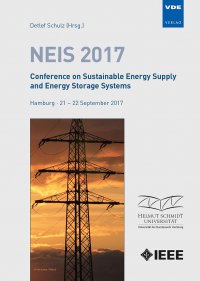Problems with voltage stability due to long-distance transmission of hydropower in the Tajik extra-high voltage grid
Konferenz: NEIS 2017 - Conference on Sustainable Energy Supply and Energy Storage Systems
21.09.2017 - 22.09.2017 in Hamburg, Deutschland
Tagungsband: NEIS 2017
Seiten: 4Sprache: EnglischTyp: PDF
Persönliche VDE-Mitglieder erhalten auf diesen Artikel 10% Rabatt
Autoren:
Halimjanova, Munira; Kaatz, Gesa; Meyer, Marc Florian; Dettmann, Klaus-Dieter; Schulz, Detlef (Helmut Schmidt University, Hamburg, Germany)
Inhalt:
This article describes problems with voltage stability in the transmission grid, which occur in extra-high voltage grids with long-distance transmission lines. In Tajikistan, one reason for long transmission distances is the fact that the main source for electrical energy is water and the big hydropower stations are often far away from the loads. Many loads are in the North of the country, but the majority of the hydropower stations are in the South. The analysis of these problems uses authoritative data provided by the Republic of Tajikistan. Therefore, the presented simulations with the software DigSILENT PowerFactory 2017 are based on real parameters of the Tajik energy system. The goal of this article is to determine the sources of overvoltages in the transmission grid and to propose an optimal solution with regard to stability and minimal losses. A focus is the comparison of reactive power fed by generators vs. reactive power compensation by reactors on the extra-high voltage level as well as to find optimal locations for reactors.


